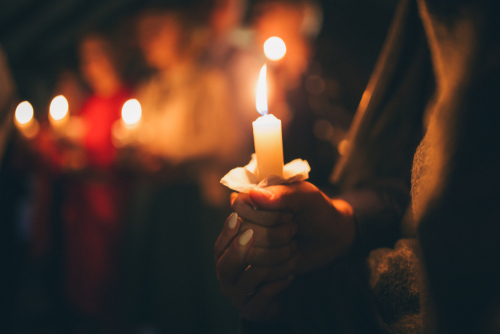Gorsuch, Thomas question 'offended observer' standing in rejected police prayer-vigil case

Photo from Shutterstock.
Justices Neil Gorsuch and Clarence Thomas suggested Monday that an “offended observer” does not have standing to sue for an alleged establishment clause violation, when the U.S. Supreme Court declined to hear a police prayer-vigil case.
The case alleges that the city of Ocala, Florida, violated the establishment clause of the First Amendment when its police chief organized a prayer vigil in the town square to help bring the community together after several children were injured in a shooting spree. Police chaplains participated in the vigil. Several atheists who attended the event sued the city and several officials.
The 11th U.S. Circuit Court of Appeals at Atlanta held at least one of the plaintiffs had standing and sent the case back to the district court to reconsider in light of the Supreme Court’s 2022 decision on behalf of a praying football coach.
In a statement regarding the cert denial, Gorsuch said the district court should reexamine the merits of the establishment clause claim, but it should also reconsider standing.
“This court has never endorsed the notion that an ‘offended observer’ may bring an establishment clause claim,” Gorsuch wrote.
But Gorsuch agreed that there is no need for the Supreme Court to get involved at this point.
Thomas dissented from the cert denial.
“‘Offended observer’ standing appears to warp the very essence of the judicial power vested by the Constitution. Under Article III, federal courts are authorized ‘to adjudge the legal rights of litigants in actual controversies,’ not hurt feelings,” Thomas wrote.
Thomas argued that “offended observer” standing is inconsistent with the Supreme Court’s 1982 decision in Valley Forge Christian College v. Americans United for Separation of Church and State. That case held that the “psychological consequence” from observing religious conduct with which one disagrees does not confer Article III standing, Thomas said.
The prayer-vigil case is City of Ocala v. Rojas.
Publications covering the cert denial include SCOTUSblog, USA Today via the Ocala StarBanner, Reuters, Law360 and Law.com.



